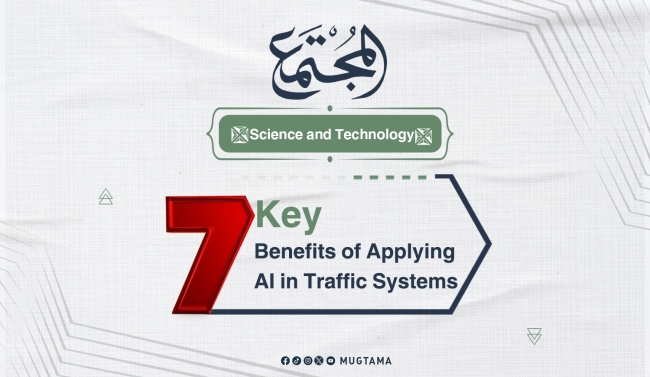7 Key Benefits of Applying AI in Traffic Systems
1. Improving Traffic Flow:
Artificial intelligence helps analyze live data from cameras and sensors. Based on these analyses, traffic signals are automatically adjusted, allowing for smoother vehicle movement.
2. Reducing Travel Times:
By predicting traffic congestion and directing vehicles to less crowded routes, smart systems contribute to reducing the time required to reach destinations, improving quality of life and reducing daily stress.
3. Enhancing Traffic Safety:
AI systems enable the detection of risky behaviors like running red lights or speeding, allowing for swift intervention and immediate issuance of violations. Predictive analytics also help identify hazardous areas to prevent accidents.
4. Reducing Fuel Consumption and Carbon Emissions:
Frequent stops at red lights increase fuel consumption and carbon emissions. By using AI to coordinate traffic flow, stop times are minimized, reducing fuel usage and lowering emissions.
5. Quick Response to Emergencies:
Smart systems can locate ambulances and fire trucks, opening pathways for them to reach their destinations faster. Los Angeles serves as a prime example, where fire trucks' response times improved by 69%.
6. Enhancing Compliance with Traffic Laws:
The Ministry of Interior in Kuwait is implementing AI systems to detect violations like not wearing seat belts or using phones while driving. These systems promote law adherence and increase drivers' awareness of traffic discipline.
7. Reducing Traffic Accidents:
AI predictive analytics help anticipate accident-prone areas. This knowledge allows for proactive measures to address signal malfunctions or issue alerts, significantly reducing the occurrence of traffic accidents.
-------------------------------------------------------------
Source: The technical platform "Gadgets 360".


